Hello,
I’m sorry to hear about your cat. Without knowing all of the pertinent details, if you feel like you have tried and done everything (like canned food only, adding laxatives and encouraging and promoting as much activity as possible) and you are still not able to get the colon moving properly then the best option is a surgery called a subtotal colectomy (removing the colon ). It is generally agreed upon that a true mega colon cat is only treatable by this surgery.
I hope this helps and good luck.











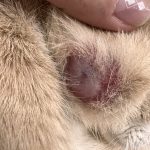

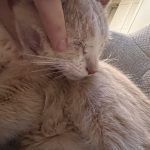
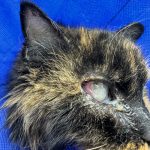

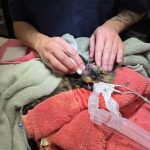
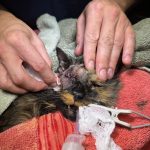
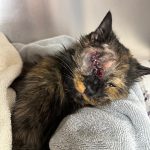



Hello,
Usually these are just scar tissue between the body wall and skin. If you have a regular vet ask them to check for you. Just in case. If you don’t have one it’s a good idea to establish yourself as a client so that you have someone who knows you when you need routine care or even the occasional mishap/illness needs.